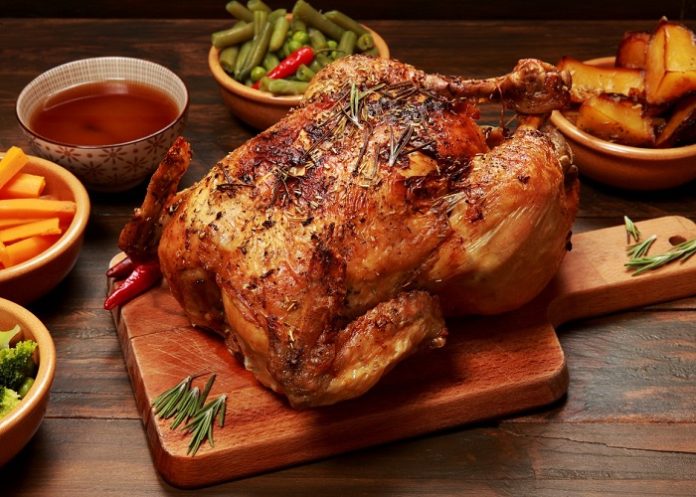Regularly eating chicken could double the risk of dying from gastrointestinal cancers, suggest scientists who followed the diets of nearly 5 000 people over 20 years and uncovered some surprising findings.
With red meat having long been linked to an increased risk of bowel cancer, chicken and other white meat have typically been considered less of a threat for illnesses.
Chicken is thought to help reduce health risks like increased cholesterol and inflammation, as well as being a budget-friendly source of protein.
But the study by Italian scientists, published in the journal Nutrients, has suggested poultry also has health risks, reports The Independent.
The study, which ran from 2006 to 2024, focused on participants’ meat consumption before tracking causes of deaths, and taking into account factors like smoking status and body weight.
Researchers found that those who ate more than 300g of poultry a week had a 27% higher risk of dying than those who ate less than 100g a week, with the risk of cancers and cardiovascular disease increasing.
Those who ate more than 300g of poultry were twice as likely to die from gastrointestinal cancers as those who had less than 100g, according to the study.
The authors from Italy’s National Institute of Gastroenterology could not be sure why there was an increased risk but offered several theories.
One explanation is that the feed – hormones or medication given to poultry on farms – could be increasing the cancer risk in humans.
The study found eating 300g of chicken a week increased the risk of 11 different types of gastrointestinal cancers, including cancers affecting the stomach, bowel, bile duct, anus, gallbladder, liver, pancreas, rectum, small intestine and the soft tissue in the abdomen.
Swopping poultry for plant-based proteins and seafood and avoiding overcooking meat were identified as some of the possible ways of reducing the risks.
“We believe it is beneficial to moderate poultry consumption, alternating it with other equally valuable protein sources, like fish, and to focus more on cooking methods, avoiding high temperatures and prolonged cooking times,” the authors said.
However, they acknowledged several limitations in the study, including not recording how the poultry was being cooked and eaten in the dietary data, meaning some may have been eating fast-food while others were eating healthier home-cooked meals.
“It is important to learn more about the long-term effects of this food category – white meat – that is widely consumed by the world population who, perhaps mistakenly, consider it healthy in absolute terms.”
Study details
Does poultry consumption increase the risk of mortality for gastrointestinal cancers? a preliminary competing risk analysis
Caterina Bonfiglio, Rossella Tatoli, Rossella Donghia et al.
Published in Nutrients on 17 April 2025
Abstract
Background
Poultry meat is currently among the most widely consumed meats in Italy and worldwide. Poultry is reasonably affordable and accessible, explaining the high global consumption rates. This population-based prospective cohort study investigated the association between meat consumption and gastrointestinal cancers (GCs) and other causes of mortality in southern Italy.
Methods
Data were collected from 4869 participants in the MICOL and NUTRIHEP cohorts. The EPIC questionnaire was used to elicit information on food and drink consumption. For analytical purposes, weekly meat consumption was grouped into four categories: total meat: <200 g, 201–300 g, 301–400 g, and >400 g red meat: <150 g, 150–250 g, 251–350 g, and >350 g; poultry: <100 g, 100–200 g, 201–300 g, and >300 g. Cox proportional hazard regression and competing risk models were employed for statistical analysis.
Results
Analysing weekly poultry consumption, it was observed that subjects consuming more than 300 g had a 27% higher risk of death from all causes [HR 1.27; 95% CI (1.00; 1.61)] than those consuming less than 100 g. In addition, for GCs, the SHR for weekly poultry consumption above 300 g was 2.27 [95% CI (1.23; 4.17)], a risk that for men increased to 2.61 [95% CI (1.31; 5.19)].
Conclusions
Our study showed that poultry consumption above 300 g/week is associated with a statistically significant increased mortality risk both from all causes and from GCs. The risk is higher for men than for women.
See more from MedicalBrief archives:
Halving red meat consumption has significant impact on health
Red meat may increase breast cancer risk but chicken decrease it
Switch from red meat to cut mortality risk — 8-year Harvard study

